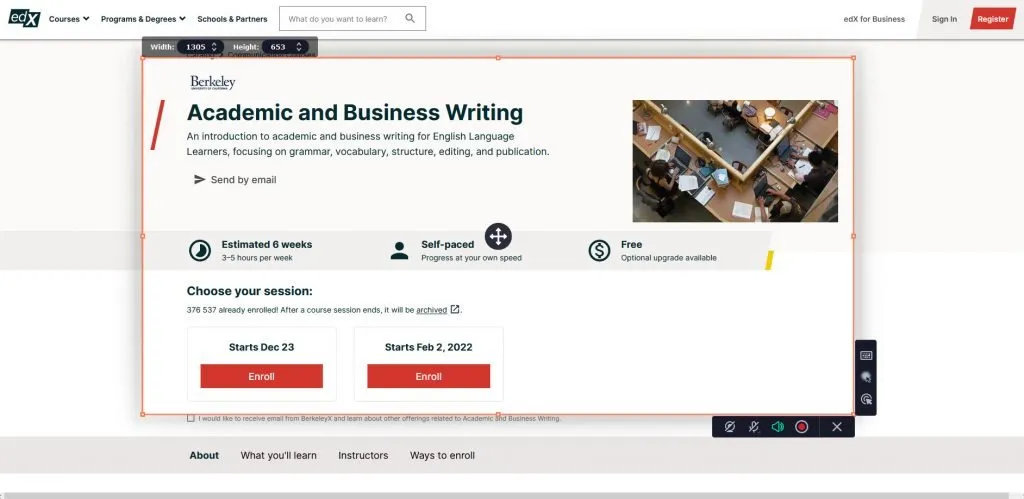Last Updated on 5 months by Christopher Jan Benitez
Writing is an essential skill that takes much more effort to master than reading, to listen, or speaking.
Writing includes several essential aspects: grammar, punctuation, spelling, style, vocabulary, and word usage.
It doesn’t matter if you are in academic writing, creative writing, business writing, or technical writing. Chances are, you will need to write something at some point.
There are many methods for improving your writing process, regardless of your level of knowledge. To achieve the best results, make sure you efficiently combine them.
Not only will you be able to create more effective content that allows you to communicate your ideas and message. It also allows you to jumpstart your writing career, like producing content that ranks, strengthening your writing portfolio so you can get more clients, and more!
Read below for the best writing tips to help you generate more clients by producing valuable content in the written word.
1. Improve the vocabulary
The first step to improving your English writing skills is getting serious about your vocabulary. The more words you know, the easier it will be for you to express yourself in writing.
You can enrich your vocabulary by reading books and articles in English, using a dictionary-like Thesaurus, WordReference, or Wiktionary, and even listening to your favorite songs.
The important note here will be to learn words within the context and not separately. This will help you see their usage and understand their multiple meanings.

2. Focus on grammar
A great way to improve writing skills on the go is by downloading a grammar app onto your phone or computer. This will help you stay up-to-date on correctly using words and phrases and expand your vocabulary.
Many different apps offer this service, such as English Grammar, a digital version of Ryan Murphy’s grammar book. Another popular choice is LearnEnglish Grammar which provides theory and practice for any language level, from beginners to advanced.
Both apps are free to use and are available for Android and iOS.

3. Read books and articles in English
Another way to improve your vocabulary and grammar (and thus, writing) is through reading great English pieces written in novels, short stories, poems, etc.
If you are unsure where to start when finding new material that will improve your language knowledge, look at some listicles featuring the books every aspiring writer should read.
Reading fiction has improved creative thinking, which helps with writing. It also helps you develop your style of writing.
4. Write more often
This may seem an obvious prompt, but it is the most effective one.
They say you should keep swimming to be great at swimming. The same thing applies to great writers. The more you write, the better you will get at it.
It doesn’t matter what you write – just get started.
You can keep a journal, or blog, or write down your thoughts. Even if you are unsure what to write about, it’s okay.
Just make an effort to put pen to paper (or fingers to keyboard) as much as possible, and don’t worry too much about the quality of your work at first.
Don’t be afraid to make mistakes; keep practicing. This means simply writing without stopping or editing what comes out of your head about anything that pops into it.
Over time, you’ll get more comfortable with the practice of writing until it becomes second nature to you.
By then, you’ll have developed your own voice and tone distinct from the rest. This allows you to generate more clients or attract your target audience more effectively.
5. Practice with online tools
Checking your own writing using online tools is a great way to learn from your mistakes.
One such tool is Grammarly, a spell-checking software that helps you edit and eliminate unnecessary words in real time for writers and teams. Many other online tools like Readable and Hemingway Editor are designed to help writers achieve grammatically correct and error-free writing.
They can help you catch common mistakes in your writing, show the readability score, help with sentence structure and length by identifying filler words, and eliminate passive voice. Keep in mind, however, that Grammarly Premium comes at a price.
You can also use WordReference’s conjugation tables to help improve your verb tenses or The Free Dictionary to look up the definitions of words you don’t know. And remember – proofreading is always essential!

6. Read aloud what you’ve written
The act of reading aloud will help you catch errors in grammar and sentence structure, as well as improve your pacing and overall flow.
Reading your work out loud can also help you to identify areas where you may need to add more detail or explanation.
As a bonus, reading your finished piece can give you a sense of how it will sound to others.
7. Create a writing schedule
It is essential to have goals so you can track your progress and see what works best for you.
Creating a weekly, monthly, or even daily writing schedule will help keep you accountable and provide structure for completing tasks so you can improve your writing.
Start by writing every day. This might seem daunting, but if you start small, you can gradually increase your daily writing goal.
Be sure not only to set goals but also to create action steps toward achieving them!
8. Join a community of writers
Feedback and peer editing are the best ways to evaluate your writing skills.
Participate in an online community of writers or even a writing workshop. From here, you can get feedback from other editors on your text and share your comments on others’ work. Both will help you become a better writer.
There are many social media communities that you can join, such as Facebook groups or forums where people share their stories and poems – search online to find a community that best suits you.
You will learn a lot and make new friends too! If you’re shy about sharing your work with strangers, show it to your close friend first. Take their comments on board, but ensure they’re giving constructive criticism.
9. Take an online course
Taking courses is another great way to get writing advice.
Many colleges now offer free lectures through MOOCs (Massive Open Online Courses) that provide opportunities to learn about different topics. These learning resources can teach you about grammar and style, as well as how to improve your writing skills overall.
You can also pick a course specializing in specific writing styles.
You can choose a pre-recorded course or join real-time webinars.
It will also be a good idea to record the classes so you can rewatch them whenever possible. You can use software like Movavi Screen Recorder. Still, you must remember that you can’t commercially use these recorded videos and upload them online, even with attribution.

10. Practice writing different types of texts
Don’t just stick to essays and reports – try different writing genres and experiment with blogs, articles, fiction, poetry, etc.
Creating short fictional pieces will work wonders for your imagination and writing skills.
You can practice in various ways; for example: write a story about how you would survive an apocalypse or create different characters that include dialogue to see if they sound realistic.
If you’re unsure where to start writing fiction, try reading authors like Edgar Allan Poe and Jules Verne or read books written in the genres of fantasy or mystery.
11. Use writing prompts
If you are struggling with ideas, try using writing prompts.
A writing prompt is a sentence or topic that will help you find inspiration and flow your creative juices.
They provide helpful guidelines, which will help you write about anything from why someone should recycle more often to what you would do if you found a million dollars on the street.
Prompts can also help you become a good writer because they give you a topic to explore in-depth.
12. Find a tutor
If you don’t have much time to improve your writing in the English language but still want the best possible results from a reputable source, then hiring a tutor is what you need.
Tutors can provide personalized lessons focusing on grammar and style, reading comprehension, and listening skills.
In addition, they will help you correct spelling errors, identify sentence structure mistakes and suggest changes in word choice – all of which improve overall writing quality.
An excellent way to find tutors for this type of work is by checking out platforms such as Upwork or Preply that connect teachers and students from different parts of the world.

13. Study different style guides
There are different writing style guides that you can follow to improve your grammar knowledge.
A comprehensive guide, such as The Chicago Manual of Style, is a great way to learn about the rules for punctuation, capitalization, and more.
However, it’s important to remember that there is no “right” or “wrong” answer to following a particular style guide – it all depends on the publisher’s preference.
If you want to be an independent writer, then choosing one guide and sticking with it will make your life easier in terms of consistency.
14. Learn the differences between written and spoken language
When you write, it is essential to remember that other people will read your text. You need to use standard grammar and avoid slang or informal language.
However, when you speak, you can use the everyday language since the person listening will understand the context.
It’s a good idea to learn the differences between written and spoken English so that your writing sounds natural.
Final Say
So there you have it — 14 practical ways to achieve good writing skills and habits!
Setting goals, participating in online communities, taking courses, and practicing writing – are all great methods to improve at expressing your thoughts on paper or a Word document.
These tips will help you improve grammar and vocabulary specific to certain industries like technology, marketing, or medicine.
Remember to practice regularly and have fun with it, too – after all, writing should be enjoyable.

